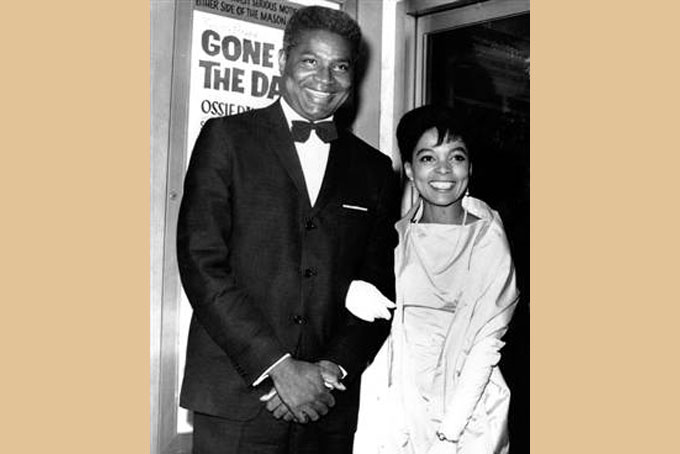
For the week of Dec. 18-24
December 18
1865—Congress passes the 13th Amendment to the Constitution officially abolishing slavery in America. The actual ratification of the Amendment had been completed on Dec. 6. Reconstruction began and legendary abolitionist Frederick Douglass considered retiring to a farm after urging the nation to insure Black voting rights. But a February 1866 meeting with President Andrew Johnson shocked him out of retirement. Johnson told the Douglass delegation that he intended to support the interests of Southern Whites and would oppose giving voting rights to the ex-slaves. Johnson’s racism led to a radicalized Congress passing pro-Black legislation over his vetoes.

1917—Performer Ossie Davis is born Raiford Chatman Davis on this day in Cogdell, Ga. Davis was probably Black America’s best example of a combination entertainer and political activist. In addition to his stage and movie careers, Davis and his wife, Ruby Dee, were deeply involved in the Civil Rights Movement. Davis was a key speaker at the funerals of both Malcolm X and Dr. Martin Luther King Jr. He died Feb. 4, 2005 of natural causes while in Miami Beach, Fla.
1971—National Black political leader Rev. Jesse Jackson founds Operation PUSH (People United to Save Humanity) in Chicago. Breaking with some of the older civil rights organizations, Jackson declared that the modern problems facing Blacks “are economic so the solution and goal must be economic.”
1996—The Oakland, Calif., school board shocks the nation and angers much of the educational establishment by recognizing “Ebonics” (Black English) as a separate language and not a dialect or slang.